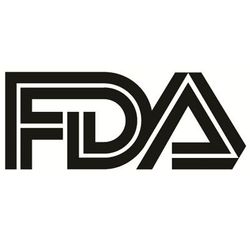
OR WAIT null SECS
Tildrakizumab Sustains Four-Year Benefits in Plaque Psoriasis
The data presented at the EADV Congress in Madrid builds on the findings reported at 52 and 64 weeks in the phase 3 reSURFACE 1 and 2 trials.
New findings from long-term follow-up assessments show maintained significant response rates among patients with moderate to severe plaque psoriasis treated with tildrakizumab-asmn (ILUMYA) at 4 years.
The data, presented at the European Academy of Dermatology and Venereology (EADV) Congress in Madrid, Spain this week, built on the findings reported at 52 and 64 weeks in the phase 3 reSURFACE 1 and 2 trials assessing the monoclonal antibody’s benefit in Psoriasis Area Sensitivity Index (PASI) scoring.
In the pair of clinical trials, which assessed tildrakizumab 100 mg or 200 mg in adults with moderate to severe chronic plaque psoriasis—and in comparison to etanercept and placebo, in reSURFACE 2—investigators found significant response rates in PASI at 54 and 64 weeks, respectively.
Now, in open-label analyses assessing the drug for 208 weeks (reSURFACE 1) and 200 weeks (reSURFACE 2), patients on continued therapy reported significant, durable improvements in both PASI and Physician Global Assessment (PGA) scores—indicating disease severity control with tildrakizumab.
More than half of the observed patients achieved PASI 90 or better, with no new safety concerns emerging at 4 years. Additionally, investigators observed a sustained PASI 75 or PASI 100 mark over 3 years with tildrakizumab—at rates consistent in patients with and without metabolic syndrome, one of the most common comorbid conditions in psoriasis.
In reSURFACE 1, 69% and 71% of patients with and without metabolic syndrome achieved PASI 75, respectively; 42% and 51% of patients with and without metabolic syndrome achieved PASI 90, respectively; and 27% and 23% of patients with and without metabolic syndrome achieved PASI 100, respectively.
In reSURFACE 2, 73% and 79% of patients achieved PASI 75; 57% and 60% achieved PASI 90; and 34% and 32% achieved PASI 100, respectively. At 3 years, adverse events were commonly associated with metabolic syndrome, including infections, cardiovascular events or complications of diabetes. That said, there were no observed differences in safety outcomes among patients with and without metabolic syndrome.
Alan Mendelsohn, MD, associate vice president of Dermatology Medical Affairs at Sun Pharma, noted the importance of delivering therapies which address psoriasis’ lifelong burden, as well as its common comorbid conditions.
"ILUMYA has been proven to provide significant skin clearance that begins soon after initial use and is maintained for years, with just 4 doses a year following 2 starter doses, without demonstrating any new or increased risk of safety events,” he said in a statement.
"," said Jeffrey Crowley, M.D., Bakersfield Dermatology, Bakersfield, California. "These data provide confidence that ILUMYA can help patients with moderate-to-severe plaque psoriasis, regardless of metabolic syndrome, achieve and maintain significant skin clearance over the long-term."
Jeffrey Crowley, MD, of Bakersfield Dermatology, echoed the significance of the new reSURFACE trials data—and what it may mean for prescribing clinicians.
“Psoriasis is an individualized condition and it can be a challenge for clinicians to prescribe a medicine that's effective over time, especially for patients with co-morbid conditions like metabolic syndrome,” Crowley said.


